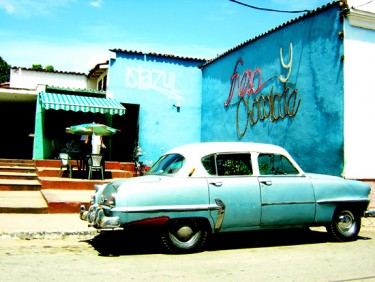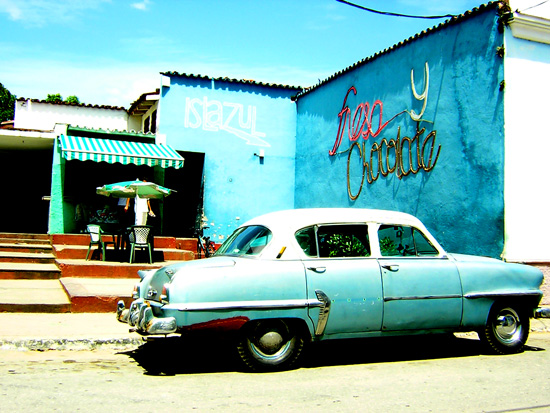
The Cuban embargo has persisted since its creation in 1960, when the United States imposed restrictions on trade and general diplomatic relations with Cuba. After nearly half a century, President Obama announced plans to loosen these restrictions after the release of American prisoner Alan Gross in December of 2014.
While the lifting of the Cuban embargo has not yet been discussed or approved by Congress, improved relations between the U.S. and Cuba could impact students and faculty members focused on Latin American and Caribbean studies at UM.
“Depending on the terms of the arrangement, scholars, artists and other figures from Cuba would be able to come to Miami and get paid to give lectures, take part in conferences, exhibitions, etc.,” said George Yúdice, professor of Latin American Studies (LAS). “Students and faculty from UM would be able to travel much easier to conduct research in Cuba. It will also be easier to get access to Cuban materials, such as books, films, art and music.”
Additionally, the potential lift of the embargo could transform research at the graduate level.
“Cuba will not only become more accessible as an object of study, but also as an experience,” said Catalina Ramirez, a graduate student in the LAS department. “I imagine that through increasing contact and dialogue in study abroad programs, research opportunities and scholarly exchanges with the island, our understanding as well as our approaches to teaching, thinking and writing about Cuba will expand and become more diverse.”
While it is too early to determine the effects of improved relations on tourism trade, Study Abroad Director Devika Milner explained that exchange programs with Cuba could potentially take a different route. While Study Abroad does not have a formal program with Cuba, students could contact the office to suggest a faculty-led program on the island.
“The normalizing of relations with Cuba is very strategic for American students who wish to study abroad in Cuba,” Milner said. “Even though students had been permitted to travel to Cuba for educational purposes over the years, the academic experience will likely be more enriching now that U.S.-Cuba relations are moving in a new, more open direction.”
The teaching of Cuban history is also an issue that comes into play. While the past cannot be changed, the new relations will need to be taken into account when discussing a timeline of the Cuban embargo or its effects.
“I don’t know if this will affect so much the types of courses being offered, but generally there will be an interest among faculty and students to know more about the history about Cuban-U.S. relations,” said Eduardo Elena, an associate professor in UM’s Department of History with expertise in Latin America. “There’s a possibility that people elsewhere in the world will turn to professors and students at UM and at Miami more broadly to know what’s going on.”
Melissa Hurtado, a sophomore in the Fellows in Latin American Studies Program (FILAS), agreed that the discussion of Cuba in the classroom could be deepened.
“The classes that I’ve taken so far talk about Cuba, but it’s always through the same perspective: the perspective of the revolution,” Hurtado said. “It’s like Cuban history stops after the revolution, so a better relationship could mean that Americans are more open to knowing how Cuban society actually is.”
While some courses will have to adapt if changes come, others like the Cuban Studies Certificate Program, a degree offered twice a year by the Institute for Cuban and Cuban American Studies (ICCAS), will not necessarily change its line of study.
“As of now, Certificate Programs in ICCAS have always been focused on Cuba itself, and because they are very condensed eight-day programs, we don’t go into the island’s relations with other countries,” said Jennifer Hernandez, research assistant at ICCAS. “In the program, when we discuss scenarios for the future, we discuss Cuba on its own and what could happen with the composition of the government and its people.”
As well as impacting the world inside the classroom, the development in U.S.-Cuba relations could affect UM’s Cuban-American population. For example, contact with family members on the island could be made easier through potentially cheaper airplane tickets.
“We are hoping that if they open travel for American tourists, airfare prices will go down because right now round-trip tickets cost about $500, which is a lot, considering how close Miami is to Cuba,” said Hurtado, who has a Cuban-American background. “My family in Cuba is really excited, but I also have family here who is more conservative and is a part of the exile movement, so they think this means that the U.S. is no longer pressuring Cuba to stop human rights violations.”
Those opposed to the potential lifting of the embargo at this time also propose that the U.S. should not have diplomatic relations with a country that does not seem show progress towards democracy.
“I can’t speak for everyone else, but I, myself, feel skeptical about the latest policy changes,” said senior Nicole Marcos, who also has a Cuban-American background. “I doubt that the policy effects will lead to a more democratic Cuba because the Cuban government has set up a system where it is unable for democracy and freedom to be promoted. Money from tourism goes to the government and works towards perpetuating the oppressive Cuban regime.”







